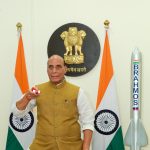Major General Ahmed Sharif, the Director General of Pakistan’s Inter-Services Public Relations (ISPR), is the son of Sultan Bashiruddin Mahmood — a Pakistani nuclear scientist sanctioned by the United Nations for alleged links to al-Qaeda and the Taliban. The appointment comes amid renewed scrutiny of Pakistan’s military establishment and its historical ties to extremist ideologies.
Bashiruddin, a former senior official with the Pakistan Atomic Energy Commission (PAEC), was alleged to have met Osama bin Laden and shared knowledge about nuclear infrastructure and the effects of nuclear weapons. According to United Nations findings and US intelligence reports, he also co-founded the group Ummah Tameer-e-Nau (UTN), which raised funds under the guise of charity for the Taliban regime in Afghanistan. The organisation’s inner circle included former top Pakistani military and scientific personnel.
Apart from his controversial associations, Bashiruddin was known for unorthodox scientific views, such as advocating that djinns—supernatural beings from Islamic theology—could generate electricity. In his writings, including Mechanics of the Doomsday and Life after Death, he sought to merge religious beliefs with fringe science, often to the concern or ridicule of his colleagues and the global scientific community.
Ahmed Sharif, an officer from the Corps of Electrical and Mechanical Engineering, previously led Pakistan’s Defence Science and Technology Organization (DESTO) and served in the military operations directorate. Though he was reportedly questioned by Pakistan’s Inter-Services Intelligence (ISI) early in his career regarding his father’s activities, he was cleared of any wrongdoing.
This development underscores ongoing global concerns about Pakistan’s nuclear ecosystem and the lingering influence of ideologically extreme figures in its scientific and military circles.













